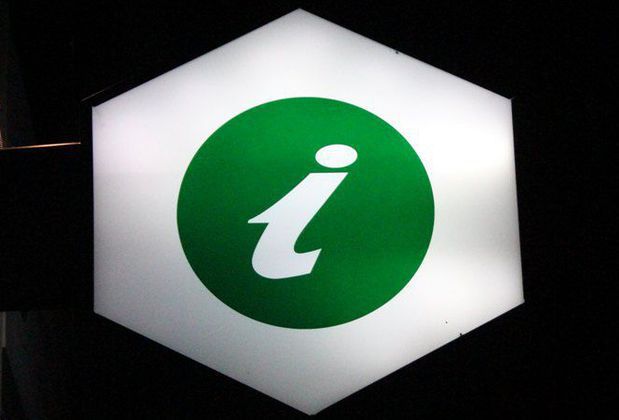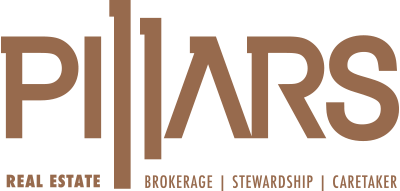
Which information is required at the sale of real estate? - Part 1
Most people leave the legal side of things for what it is and they turn to lawyers and jurists, but we are supposed to have knowledge of the legislation. The real estate sector has not been spared here. Although the regulations are of great importance, when selling a property there is a lot involved. Seller and buyer are protected and are helped in the right direction.
But how do you find your way in this?
07/09/2018
The benefits of an information requirement
The law imposes a certain information obligation on sellers, so that the potential buyers are properly and correctly informed. As a result, many later problems are already being nipped in the bud and it is easier for both parties to finalize a sales file up to a deed. In addition, the seller is protected in this way with regard to his responsibilities and no complaints can be made as a result of correctly communicated information.
For the real estate professionals, the coin has two sides. It involves extra work, but it ensures uniformity and consequently a simplicity in succession. They bear the responsibility to provide the correct information by requesting the correct paperwork. If everything is correct, then the real estate professional can show off an honest professional liability. This is a very important point for Pillars.
What should be mentioned?
18 different points can be important when buying a property. You can always ask a real estate agent. Not everything is mandatory. It is also not quite right in the different regions. Here we discuss the Flemish Region.
1. As-built Attest
This certificate certifies that a property has been built according to the specifications in the building permit and the associated plans. This is one of the obligations according to the VCRO (see also the article 'What is the purpose of the urban building information?', but not yet applicable in practice. No one will be able to submit this. You will not find this anywhere in publicity or a compromise.
2. Asbestos
This is a much-discussed culprit in renovation and demolition works due to their carcinogenic character. This is why this is well regulated by the federal government because of the well-being of employees. An asbestos inventory is mandatory here. In a non-employer context, ie in a sale, it is not yet mandatory. This is not yet reflected in publicity or compromises.
With the approval of the Asbestos Deconstruction Action Plan (20/07/2018), the Flemish Government decided that all buildings with a buildingyear prior to 2001 will have to have an asbestos inventory at the time of sale. Presumably this obligation will come into effect by 2021-2022.
3. Soil certificate
This certificate was required by the Flemish Soil Decree (27 October 2006). It follows the principle of 'the polluter pays', you certainly already heard this slogan. OVAM keeps a database with all contaminated land. The certificate states whether the soil is polluted or not and if so, whether it has been remediated or not. If contaminated, the seller is obliged to clean up for sale. This makes the transfer of a land or building a crucial moment in the protection of our soil and our environment and it informs and protects the buyer. This is why this information must be mandatory at compromise. This is not mandatory in advertisements, although a good real estate agent will have already included this soil certificate in the sales dossier.
4. Central Heating (CH)
On 08/12/2006 a Decree of the Flemish Government was issued concerning the maintenance and inspection of heating appliances for the heating of buildings or for the production of hot consumer water. A periodic inspection obligation of the CH was laid down in this. In itself this did not imply a specific duty on sale, but an obligation of the owner to be in order with the maintenance. This automatically means that you must be able to present these certificates during the sale. This must be included in compromise and deed. In this respect, compliance with these inspection duties is best recommended.
5. Property title
In itself there is no law that specifically imposes this on the real estate agents, but a regulation of ethics of duty. The broker is given a duty of identification and must therefore identify owner and property. Notaries are obliged to add this to the deed under the mortgage law. Since a compromise is a blueprint for the deed, the title of ownership is best added. In addition, it is also the case that easements can also be found here, which are also mentioned best in the compromise.
6. Electrical installation
Here we have to follow the rules of the General Regulations on Electrical Installations (A.R.E.I.). Each electrical installation must be inspected by a recognized inspection body at each commissioning and any type of modification. This certificate is valid for 25 years. When selling the property you must be able to present a valid certificate of conformity. If the installation is not in order, you must put it in order and have it re-inspected. These obligations apply to the deed of a residential unit. It is recommended (and usually also requested) to add this to compromise. Very often this is mentioned in the publicity, but it is not necessary.
This concerns the first 6 points. We continue in part 2.
Source: www.cibweb.be; www.ovam.be; www.vlaanderen.be; www.vreg.be; www.onroerenderfgoed.be; www.vmm.be; www.integraalwaterbeleid.be.


